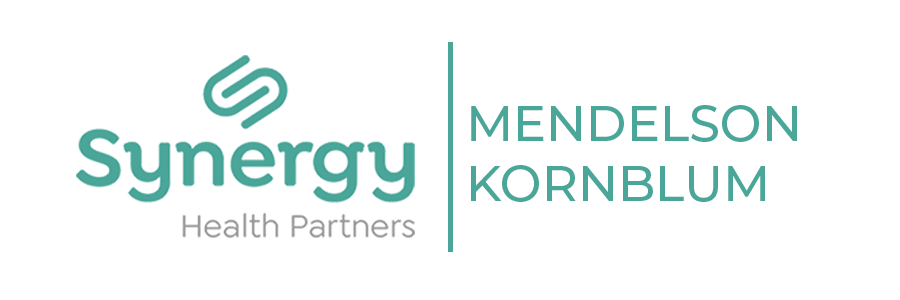Headaches & Migraines
Headache and migraine pain can disrupt your life, but there are steps you can take to find relief. Discover how we can help.


About Headaches and Migraines
Did you know that 80-90% of people have suffered from headaches in their lifetime? 13% of all Americans have migraines. 20% of those have medically resistant headaches that require intervention.
There are several different types of headaches, including migraine, tension, and cluster headaches. Migraines are recurrent headaches lasting 4-72 hours, of moderate to severe intensity that is pulsating, unilateral, aggravated by routine physical activity, and associated with nausea, vomiting, light sensitivity, and sound sensitivity. Migraines predominantly affect women.
Another type of headache known as cervicogenic headaches (or cervical headaches) originate in the upper cervical spine. These headaches are commonly seen after a whiplash injury and are usually posterior (back of the head) but can also be projected anywhere in the head or face. They are often triggered by simple activities such as brushing your hair, moving your neck, or even laying your head on a pillow. Myofascial pain (wound-up tight muscular bands) can also develop.
For patients who experience chronic headaches, we perform a number of interventional procedures depending on the nature and chronicity of their headaches.
What are the symptoms of Headaches and Migraines?
Headache Symptoms:
- Throbbing or pulsating pain in the head
- Dull ache or pressure in the head
- Tightness or squeezing sensation in the head
- Pain that worsens with activity
Migraine Symptoms (in addition to headache):
- Nausea and vomiting
- Sensitivity to light and sound
- Visual disturbances (aura) such as flashing lights or zig-zag patterns
- Dizziness
- Difficulty concentrating
- Neck pain or stiffness
What are some common types of Headaches?
- Chronic Migraine Headaches: Occur on 15 or more days per month for at least 3 months, with migraine symptoms present on at least 8 of those days.
- Episodic Migraine Headaches: Occur less frequently than chronic migraines, typically fewer than 15 headache days per month. They can still be very painful and disruptive.
- Post-Traumatic Headaches: Develop after a head injury, like a concussion. Symptoms can vary but often include throbbing pain, dizziness, and difficulty concentrating.
- Cervicogenic Headaches: Originate from pain in the neck muscles and joints, often felt at the back of the head or radiating upward. May be triggered by poor posture or neck strain.
- Cluster Headaches: Extremely severe, one-sided headaches occurring in cycles. Attacks can last for weeks or months, followed by pain-free periods. Known for excruciating pain around the eye and temple, often accompanied by autonomic symptoms like tearing or a runny nose.
- New Daily Persistent Headaches (NDPH): A rare headache disorder characterized by a constant, moderate to severe headache that starts suddenly and persists daily without remission.
Conservative Treatments for Headaches
- Stress management: Techniques like meditation, yoga, and deep breathing exercises to reduce stress that can trigger or exacerbate headaches.
- Adequate hydration: Drinking enough water and other fluids to prevent dehydration, which is a common headache trigger.
- Hot/cold therapy: Applying heat or cold packs to the head, neck, or shoulders to relieve muscle tension and pain.
- Massage therapy: Manual therapy techniques to relax tense muscles that may contribute to headache pain.
- Dietary modifications: Identifying and avoiding potential food triggers like aged cheeses, chocolate, MSG, and alcohol.
- Sleep hygiene: Getting quality sleep by practicing good sleep habits, as fatigue can provoke headaches.


Advanced Treatments for Migraines
- Botox: Injections of botulinum toxin into head/neck muscles to paralyze them and prevent muscle contractions that trigger headaches.
- Sphenopalatine ganglion injection: An injection into the area of a key nerve bundle behind the nose to help treat cluster headaches or other headache types.
- Peripheral nerve blocks: Injections of anesthetics or other medications near peripheral nerves to block pain signals from reaching the brain.
- Cervical trigger point injections: Injections into tight muscle bands in the neck area to relieve tension and referred pain.
- Physical therapy: Therapeutic exercises and techniques to improve posture, flexibility, and muscle tension, which can reduce headache triggers.
Advanced Treatments for Cervicogenic Headaches?
- Diagnostic medial branch nerve blocks: Injections of anesthetic around specific nerves in the neck to help diagnose the source of headaches or neck pain.
- Medial branch RFA (radiofrequency ablation): A procedure that uses heat generated by radio waves to disable specific nerves in the neck that may be causing headaches.
- Peripheral nerve blocks: Injections of anesthetics or other medications near peripheral nerves to block pain signals from reaching the brain.
- Sphenopalatine ganglion injection: An injection into the area of a key nerve bundle behind the nose to help treat cluster headaches or other headache types.
- Trigger point injections: Injections of anesthetics or other medications into tight, knotted muscle bands called trigger points to relieve referred pain.
- Range-of-motion physical therapy: Exercises and techniques to improve mobility and flexibility can help reduce muscle tension and headaches.
- Spinal cord stimulator: An implanted device that delivers electrical impulses to the spinal cord to interfere with pain signals reaching the brain.
Why choose
Synergy Health Partners?
Synergy Health Partners is Michigan’s sole integrated musculoskeletal care provider. We offer a comprehensive suite of services, including orthopedic urgent care, in-office treatments, ambulatory surgery centers, virtual consultations, and an in-house pharmacy. Our coordinated approach ensures seamless, personalized care for your musculoskeletal well-being.

Find a Doctor
Synergy Health Partners brings together doctors with specialized expertise in musculoskeletal care. Our physicians are affiliated with Michigan’s top hospitals and stay up-to-date on the latest technologies and treatments, both surgical and non-invasive, to provide patients with advanced, proven medical care.
Frequently Asked Questions
What is the difference between a headache and a migraine?
A headache is a general pain felt in the head region. Migraines are a type of severe, recurring headache often accompanied by other symptoms like nausea, vomiting, and sensitivity to light and sound.
What are some common triggers for migraines?
Common migraine triggers include stress, hormonal changes, lack of sleep, certain foods, changes in weather/barometric pressure, and sensory stimuli like bright lights or strong smells.
How can I prevent migraine attacks?
Preventive strategies include avoiding known triggers, staying hydrated, getting regular sleep, managing stress, and taking preventive medications prescribed by your doctor.
What medications are used to treat acute migraine attacks?
Over-the-counter pain relievers like acetaminophen, ibuprofen, or naproxen can help some migraines. Prescription triptans and anti-nausea medications are often used for more severe migraine attacks.
Are there any alternative therapies for headache relief?
Some alternative therapies that may help include acupuncture, massage, biofeedback training, herbal supplements like feverfew or butterbur, and essential oil inhalation.
When should I seek medical attention for a headache?
You should see a doctor if you have sudden, severe headaches, headaches that increase in frequency/severity, or headaches accompanied by fever, stiff neck, confusion, or other neurological symptoms.
Get Lasting Relief for Headaches and Migraines
Don’t let debilitating headaches and migraines control your life any longer. Visit Synergy Health Partners to access the latest preventive treatments and acute relief options to get your headache pain under control.
